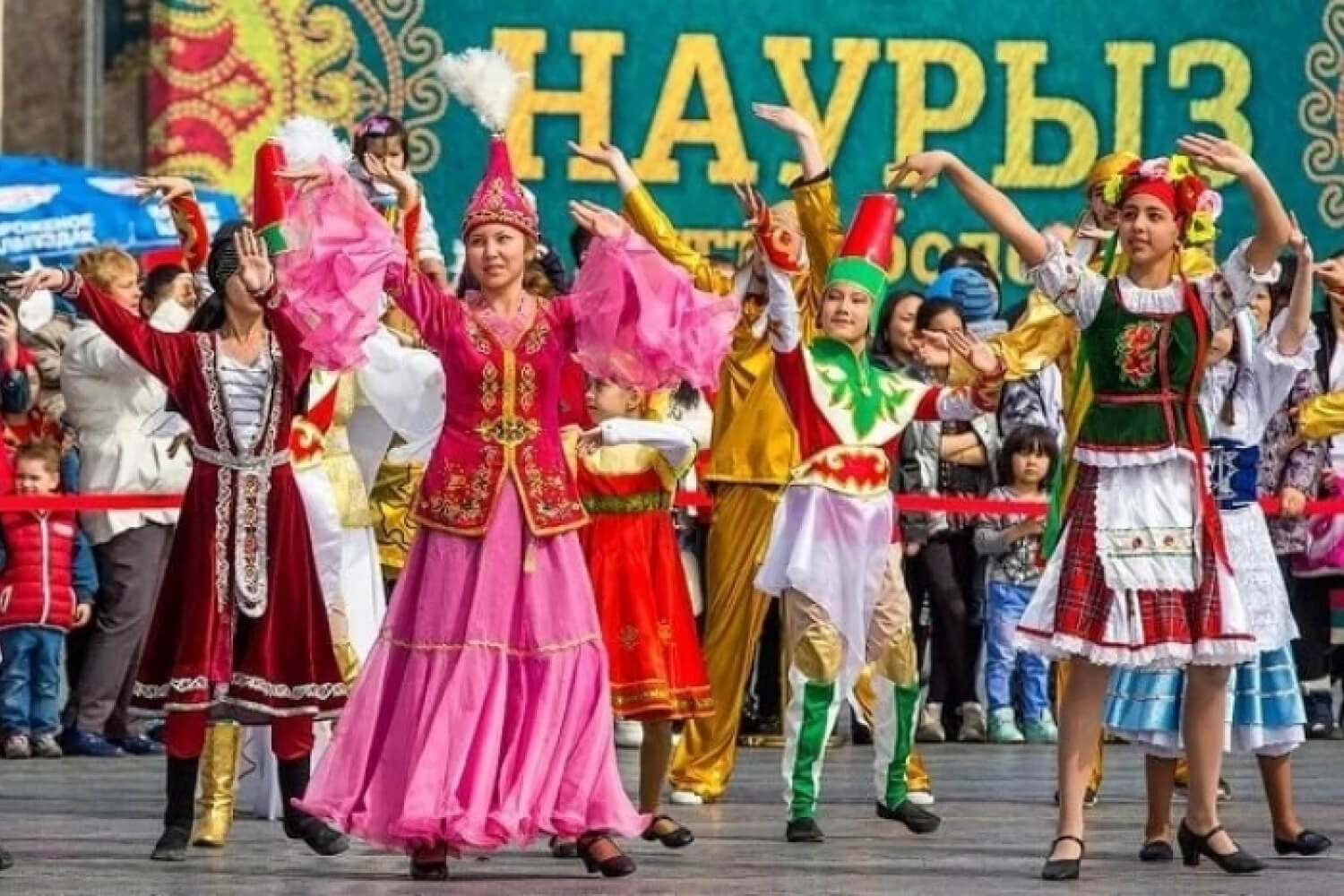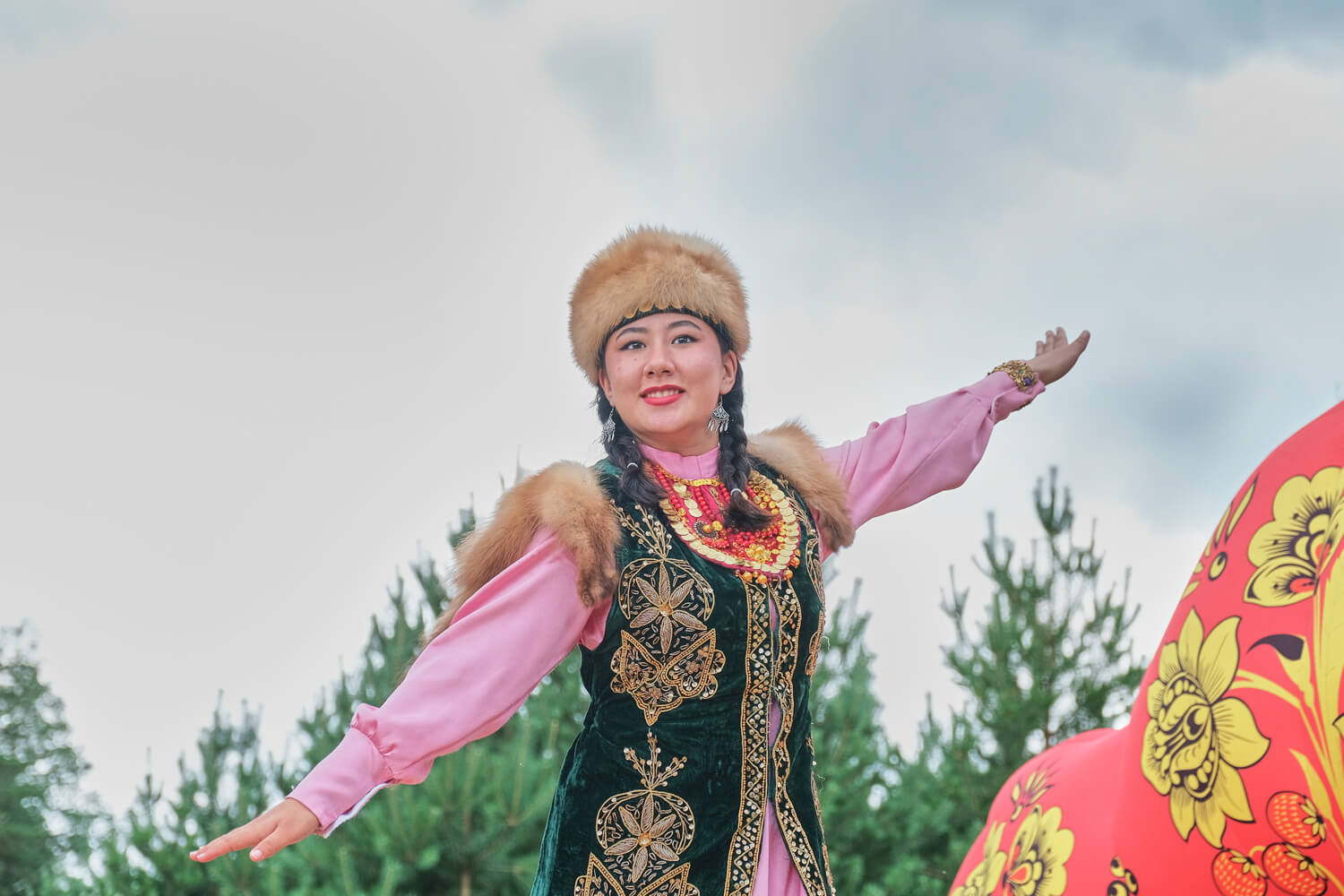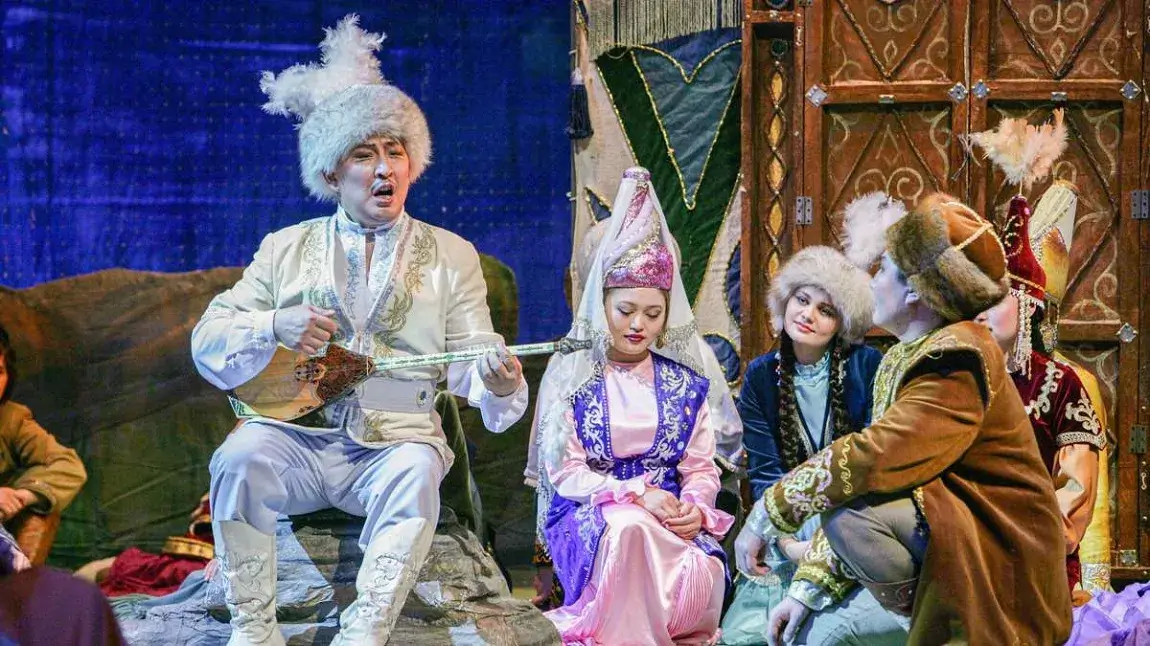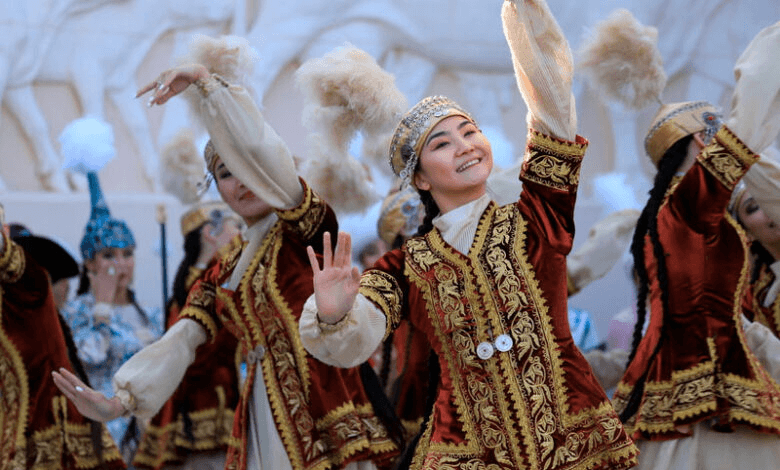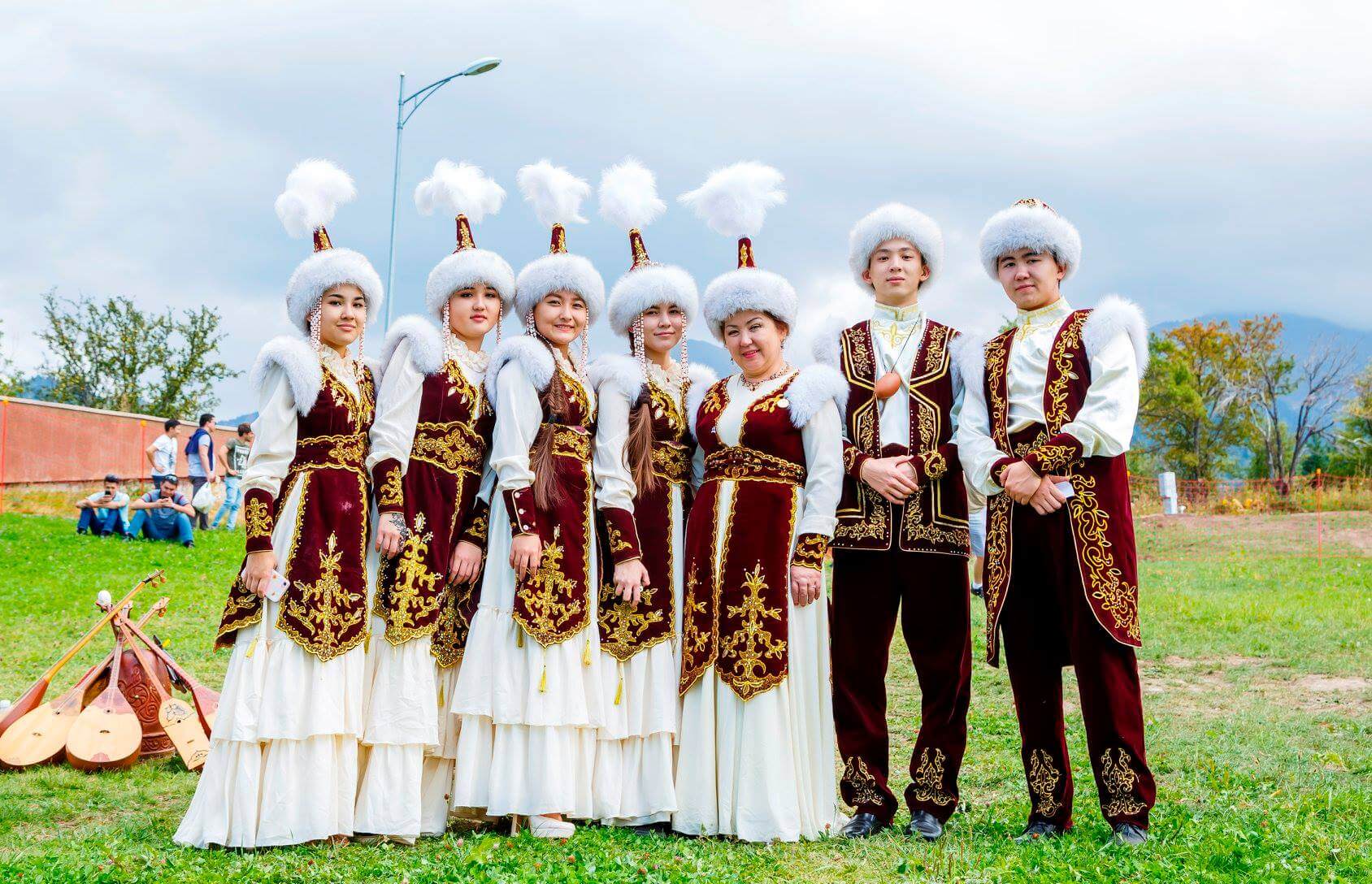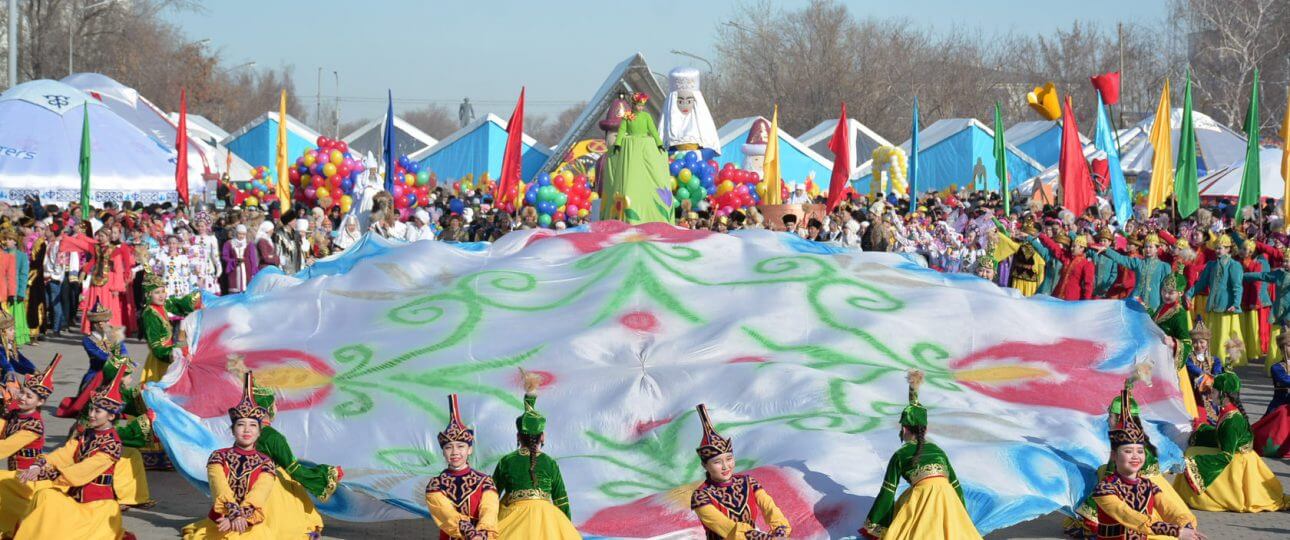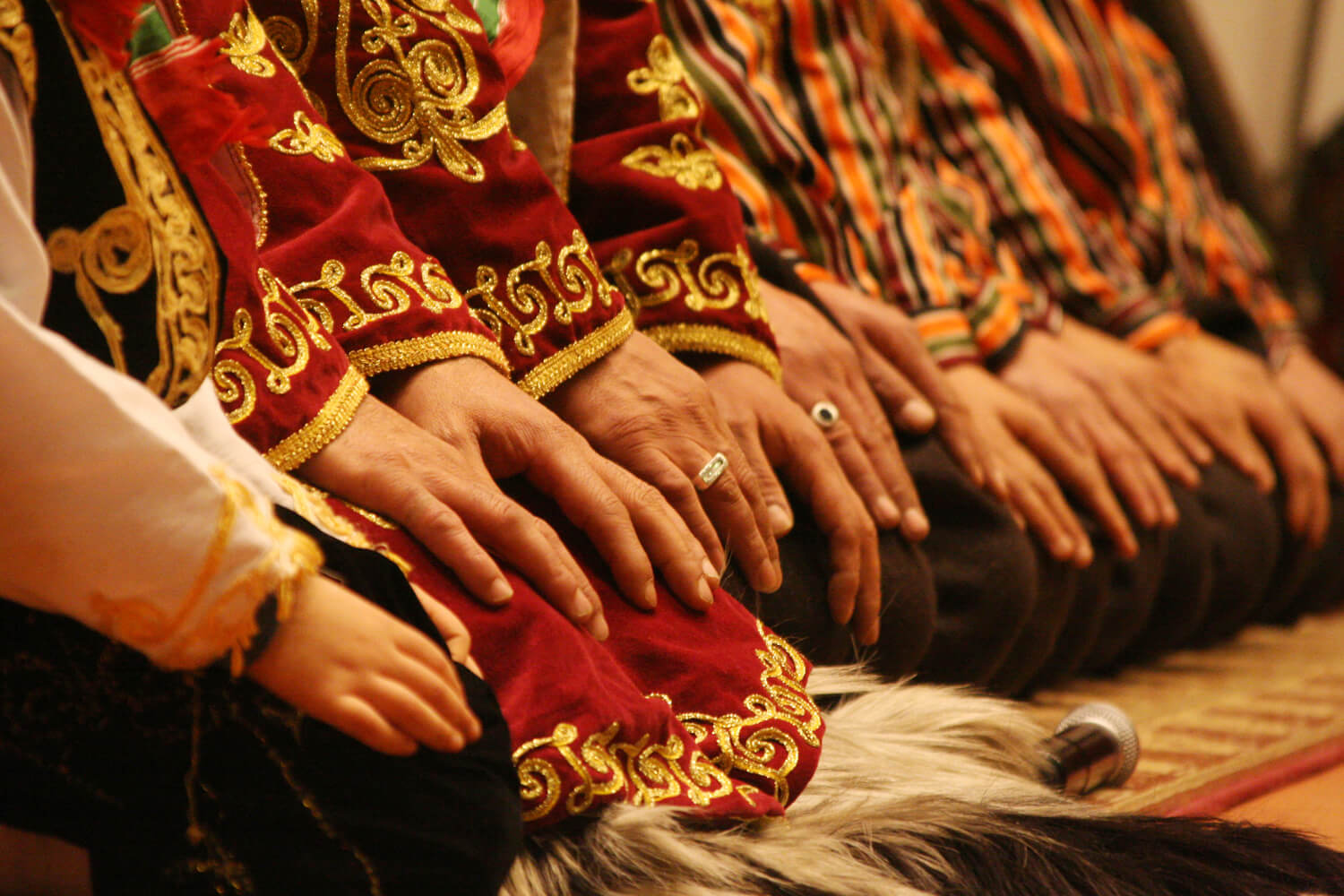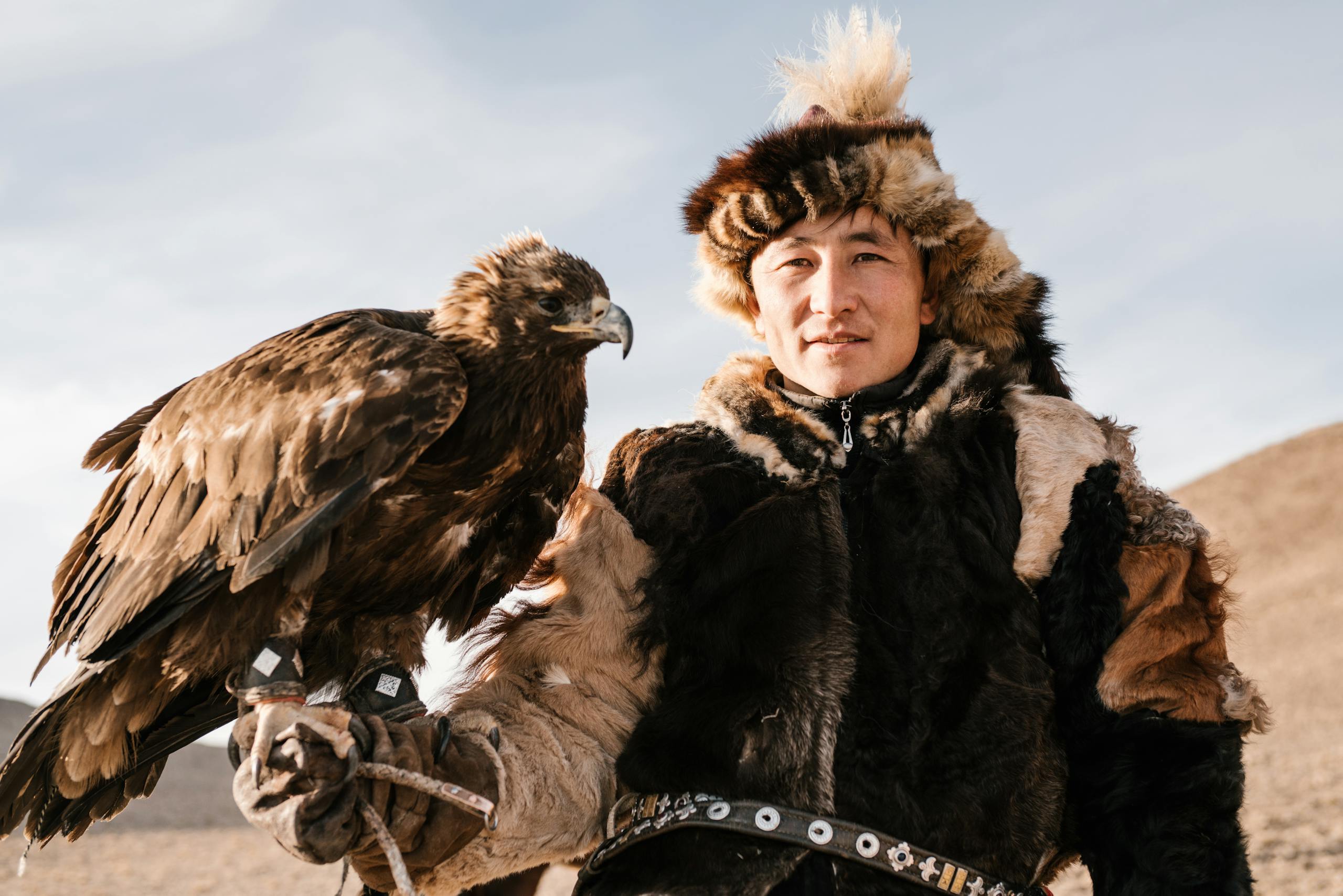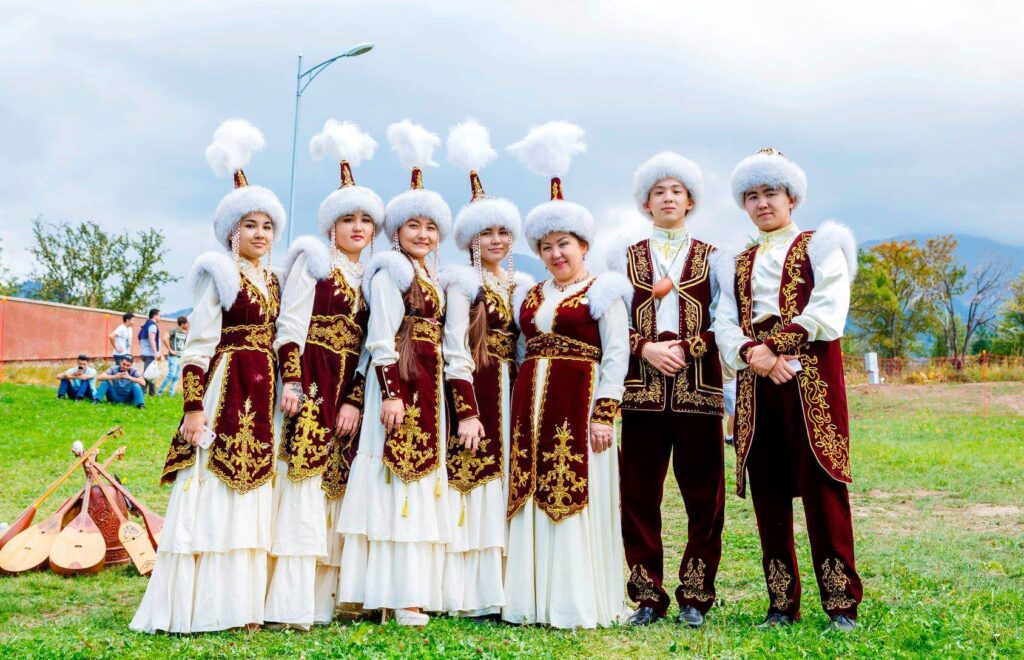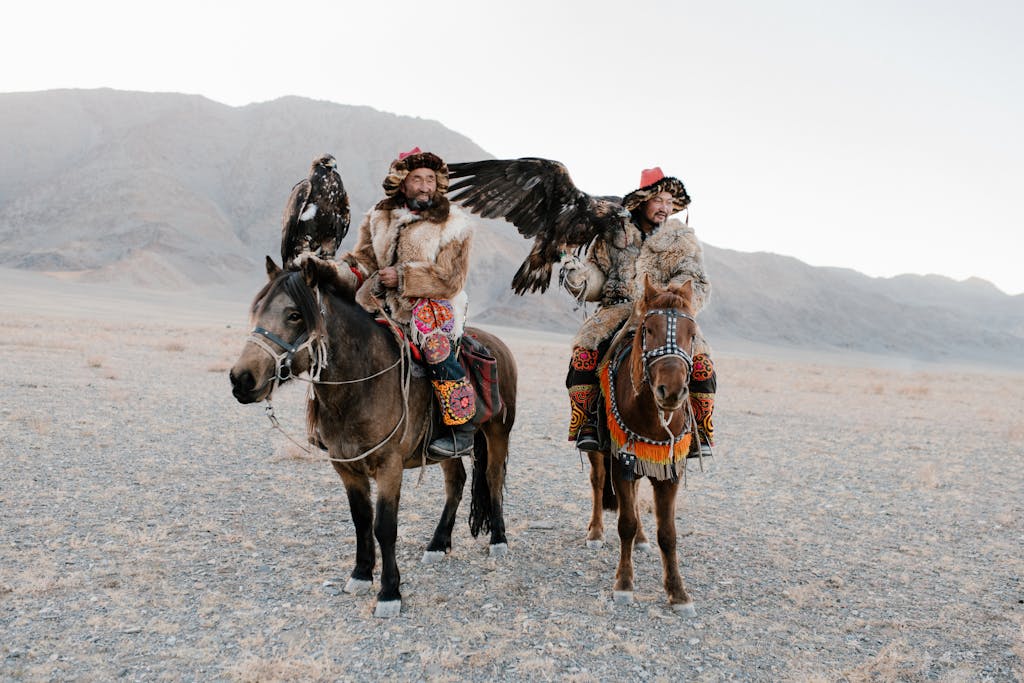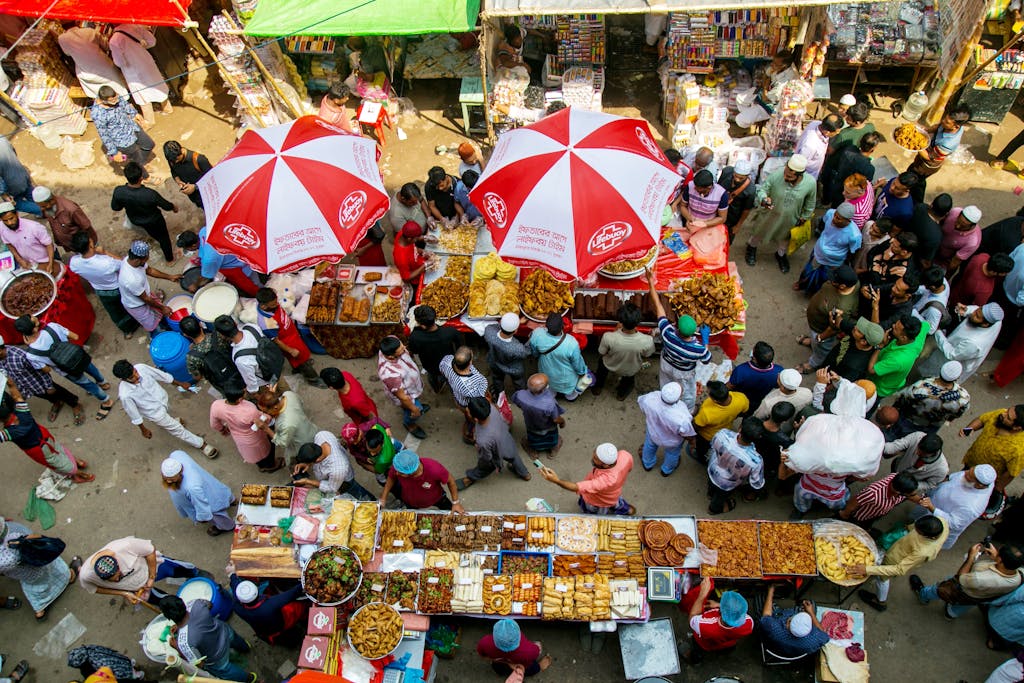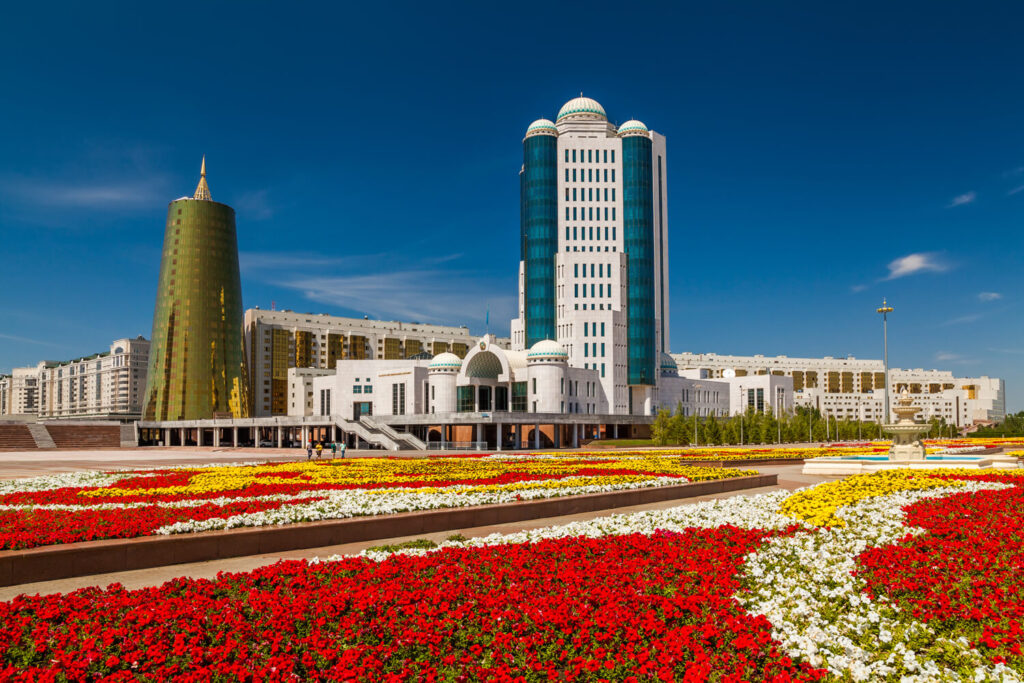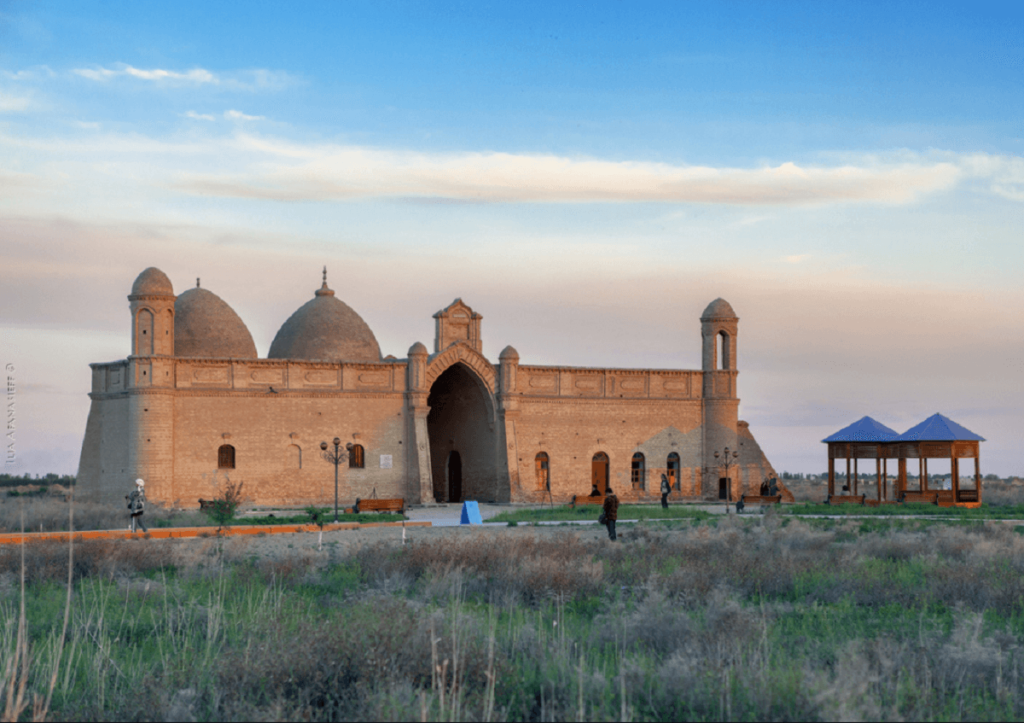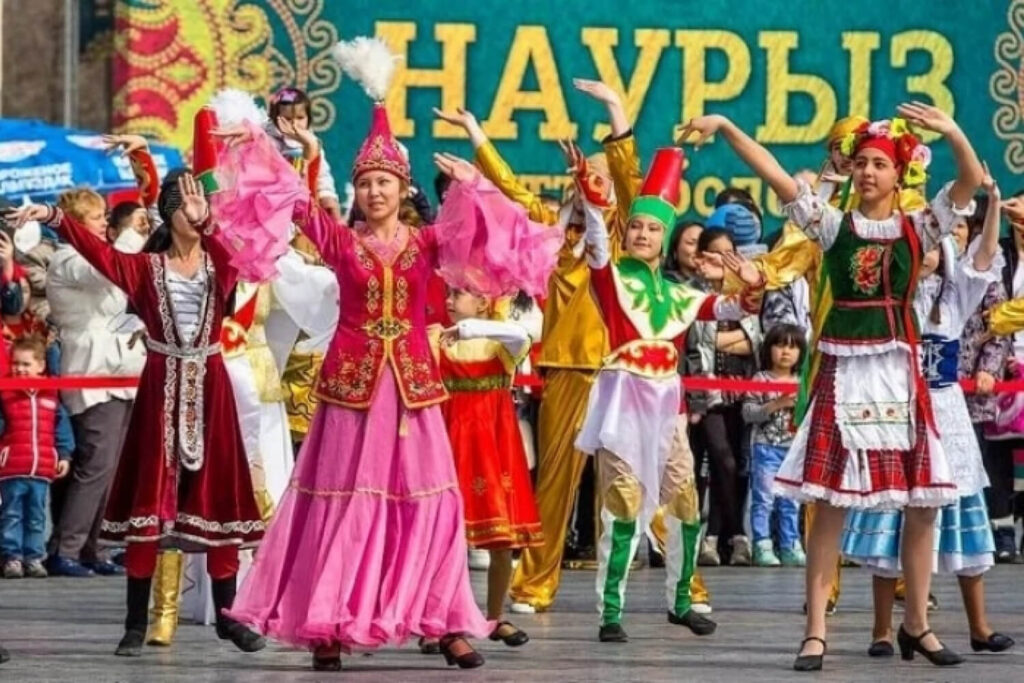Kazakhstan culture and traditions: The culture of Kazakhstan boasts a rich and diverse heritage shaped by its nomadic traditions, geographical vastness, and historical influences from various civilizations, making it renowned across the world .
Kazakhstan culture and traditions: Introduction to Kazakh Culture
Kazakh culture is a unique blend of traditional and modern elements, shaped by the country’s nomadic past and its strategic location in Central Asia.
The Kazakh people have a rich cultural heritage, with a strong emphasis on hospitality, respect for elders, and a deep connection to the natural environment.
The Kazakh language, a Turkic language, is the official language of Kazakhstan and is spoken by the majority of the population. Kazakh traditions, such as the use of yurts and the practice of nomadic herding, are still an important part of Kazakh life.
These traditions reflect the adaptability and resilience of the Kazakh people, including women who have maintained their cultural identity through centuries of change.
Kazakhstan culture and traditions: Nomadic Heritage
- Lifestyle: Traditionally, Kazakhs were nomadic herders, moving with their livestock across the vast steppes. This lifestyle has profoundly influenced their customs, values, and social structures. The extended family played a crucial role in nomadic life, providing vital support and maintaining strong kinship ties.
- Yurt: The yurt, a portable, tent-like structure made of felt and wood, is a symbol of Kazakh heritage. It represents hospitality and adaptability, serving as the traditional home for many families. Marriage practices in Kazakhstan are influenced by the cultural rule that forbids marriage between individuals related within the past seven generations, highlighting the importance of ancestry and family connections.
Kazakhstan culture and traditions: History and Ethnic Relations
The history of Kazakhstan is marked by the interaction of various ethnic groups, including the Kazakh nomads, Russian settlers, and other Central Asian peoples.
The Soviet government played a significant role in shaping the country’s history, with the imposition of Soviet rule and the subsequent suppression of national traditions.
However, the Kazakh people have maintained their cultural identity and have continued to practice their traditional way of life.
The country’s strategic location on the Silk Road has also had a significant impact on its history, with many different cultures and empires vying for control over the region.
This rich tapestry of influences has created a diverse and vibrant society that celebrates its multicultural heritage.
Kazakhstan culture and traditions: Language and Literature
- Language: Kazakh is the official language, while Russian is also widely spoken. Both languages reflect the country’s diverse ethnic composition.
- Oral Literature: Oral storytelling, poetry, and epic tales (like the “Kyz Zhibek”) play a significant role in Kazakh culture, preserving history and values through generations.
- Proverbs and Sayings: Traditional proverbs convey wisdom and cultural values, emphasizing community, respect for elders, and the importance of hospitality.
Discover Kazakhstan
Kazakhstan culture and traditions: Cultural Celebrations and Festivals
- Nauryz: Celebrated on March 21, Nauryz marks the spring equinox and symbolizes renewal and rebirth. The festival involves various activities, including traditional games, music, dance, and special foods like plov and Nauryz kozhe (a festive drink). Serving more food during Nauryz is a sign of hospitality, reflecting the cultural significance of abundance in Kazakh traditions.
- Kurak Bayan: A traditional game similar to wrestling, often featured in celebrations and festivals, emphasizing strength, skill, and sportsmanship.
- Independence Day: Celebrated on December 16, this national holiday marks Kazakhstan’s independence from the Soviet Union in 1991, featuring parades, cultural performances, and fireworks.
Traditional Music and Dance
Kazakhstan culture and traditions:
- Musical Instruments: Traditional instruments like the dombra (a two-stringed lute), qobyz (a bowed instrument), and zhetygen (a plucked instrument) play a central role in Kazakh music.
- Folk Music: Kazakh folk music often reflects the nomadic lifestyle and the vast Kazakh steppe, with themes of love, nature, and daily life. Epic songs (aytys) involve poetic improvisation and storytelling.
- Dance: Traditional dances, such as the “Kara Zhorga,” are performed during festivals and celebrations, often characterized by graceful movements and storytelling elements.
Cuisine and Food Culture
Kazakhstan culture and traditions:
Staple Foods: The cuisine is influenced by the nomadic lifestyle, emphasizing meat (especially lamb and horse), dairy products, and grains.
Traditional dishes like beshbarmak are served over noodles and accompanied by a meat broth called souppa, highlighting the deep-rooted customs surrounding hospitality and meal sharing in Kazakh culture.
Dishes like kazy and plov are also central to Kazakh meals, often enjoyed in traditional settings such as yurts .
Hospitality: Hospitality is a key cultural value. Guests are often greeted with bread, tea, and traditional dishes, reflecting respect and warmth.
Fermented Drinks: Kumis (fermented mare’s milk) and shubat (fermented camel milk) are traditional beverages, believed to have health benefits and cultural significance.
Art and Craftsmanship
Kazakhstan culture and traditions:
Embroidery and Textiles: Traditional textiles, including carpets, quilts, and felt products, often feature intricate patterns and designs that tell stories or symbolize cultural beliefs.
Kazakh artisans play a crucial role in preserving these traditional crafts and participate in national initiatives like the ‘Sheber’ competition, which aims to enhance their competitiveness both domestically and internationally.
Jewelry: Handcrafted jewelry, particularly silver pieces, holds cultural significance and is often adorned with traditional motifs. It is common in weddings and celebrations.
Visual Arts: Kazakh art encompasses painting, sculpture, and modern forms, reflecting the country’s history, nature, and cultural narratives.
Religious Practices
Kazakhstan culture and traditions:
- Islam: The predominant religion in Kazakhstan is Islam, with a significant portion of the population identifying as Muslims, primarily adhering to Sunni practices. The faith plays a significant role in daily life and cultural practices.
- Traditions and Rituals: Important life events such as births, marriages, and funerals are often marked by specific rituals and ceremonies rooted in Islamic traditions.
- Cultural Syncretism: There is a blend of pre-Islamic traditions and Islamic beliefs, visible in certain customs and celebrations.
- Social Structure and Family Life
- Family: The family unit is central to Kazakh culture, often extending beyond the nuclear family to include grandparents, uncles, and aunts.
- Cultural practices around child rearing in Kazakh families emphasize the importance of newborn care, early education, and the role of teachers in shaping students’ development. Respect for elders is paramount.
- Gender Roles: Traditionally, men were the providers and protectors, while women were responsible for the home and family. However, these roles have traditionally evolved, with kazakh men and women increasingly participating in education and the workforce.
Clothing and Traditional Attire
Kazakhstan culture and traditions:
Traditional Clothing: Traditional Kazakh attire reflects the nomadic lifestyle, with garments made from wool and felt.
The cultural significance of the Kazakh yurt, a portable dwelling used by nomads, is also reflected in traditional attire, symbolizing comfort and connection to Kazakh culture and history.
Men often wear a “chapan” (long coat), while women wear “saukele” (a traditional headdress) and colorful dresses.
Modern Influences: While traditional clothing is worn during festivals and special occasions, urban kazakhs’ everyday attire has been influenced by contemporary fashion.
Sports and Recreation
Kazakhstan culture and traditions:
- Eagle Hunting: A traditional practice where trained golden eagles are used to hunt small game, showcasing the deep connection between Kazakhs and their natural environment.
- Equestrian Sports: Horse riding is an integral part of Kazakh culture, deeply rooted in the nomadic life. Events like horse racing and kokpar (a traditional game similar to polo) are popular, reflecting the skills and traditions passed down through generations.
Discover Kazakhstan
Economy and Urbanization
Kazakhstan culture and traditions:
The economy of Kazakhstan is primarily based on the extraction and export of natural resources, such as oil, gas, and minerals.
However, the country is also undergoing rapid urbanization, with many Kazakhs moving from rural areas to cities such as Almaty and Astana. This has led to the development of a more modern and westernized culture, with many Kazakhs adopting urban lifestyles and values.
Despite this shift, the traditional nomadic way of life is still practiced by many Kazakhs, particularly in rural areas.
The government has also implemented policies to promote the development of small and medium-sized enterprises and to support the growth of the private sector, fostering a dynamic and evolving economy.
Medicine and Health Care
Kazakhstan culture and traditions:
The healthcare system in Kazakhstan is still developing, with many challenges remaining in terms of access to quality medical care, particularly in rural areas.
However, the country has made significant progress in recent years, with the introduction of new medical technologies and the training of more healthcare professionals.
Traditional medicine is also still practiced in Kazakhstan, with many Kazakhs using natural remedies and practical survival skills to maintain their health.
The government has also implemented policies to promote healthy lifestyles and to prevent the spread of diseases, such as tuberculosis and HIV/AIDS.
These efforts reflect a commitment to improving the overall health and well-being of Kazakhstan’s population.
Education and Science
Kazakhstan culture and traditions:
Education is highly valued in Kazakh culture, with a strong emphasis on the importance of knowledge and learning.
The education system in Kazakhstan is based on the Soviet model, with a focus on science, technology, engineering, and mathematics (STEM) subjects.
However, the country is also placing a greater emphasis on the development of humanities and social sciences, with a focus on promoting critical thinking and creativity.
Many Kazakhs are also pursuing higher education abroad, particularly in countries such as Russia, the United States, and the United Kingdom.
The government has also implemented policies to promote the development of science and technology, with a focus on supporting innovation and entrepreneurship.
This commitment to education and scientific advancement is a key factor in Kazakhstan’s ongoing development and modernization, despite challenges posed by political opposition .
Conclusion
Kazakhstan’s culture and traditions are a vibrant blend of history, spirituality, and communal values.
From its nomadic roots to modern influences, the country’s cultural practices continue to evolve while preserving a deep connection to its heritage.
Through festivals, music, art, and cuisine, the spirit of Kazakhstan thrives, reflecting the resilience and warmth of its people.
Whether through the intricate patterns of traditional crafts or the lively celebrations of Nauryz near government buildings , Kazakhstan’s culture offers a unique and enriching experience.

